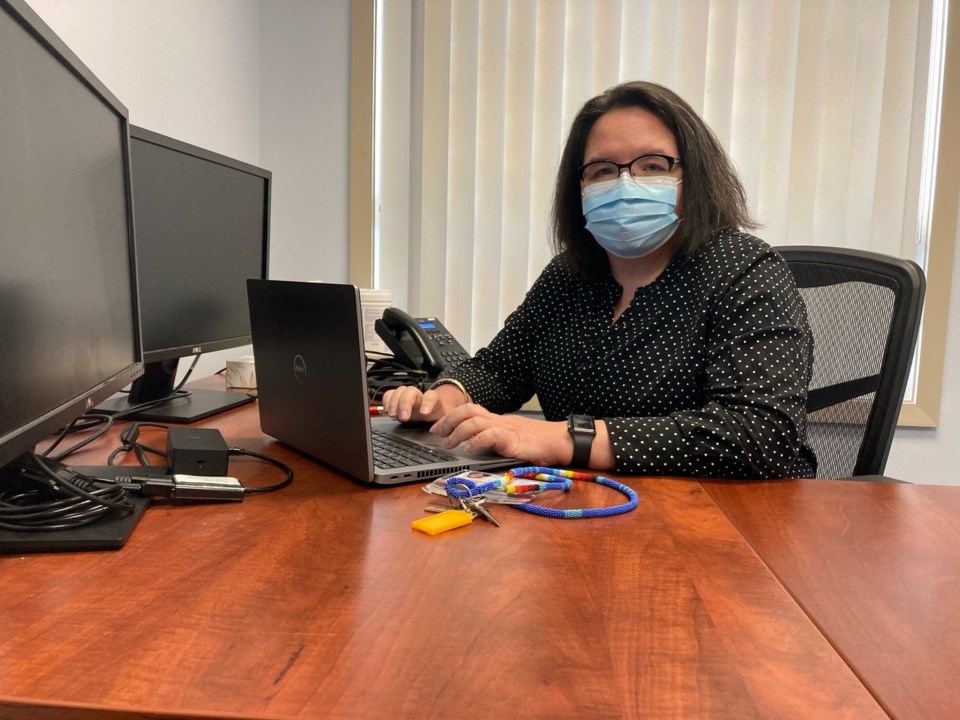SASKATOON - For children in many parts of Saskatchewan, accessing mental health services is a long and complicated process.
Even after a school psychologist has noticed them struggling in class, or their parents have seen them having a hard time at home, kids still have to face daunting wait lists and services that may not exist close to where they live.
One Saskatchewan Health Authority (SHA) pilot program serving the province’s rural southeastern communities is working to streamline this process.
Lisa Plank is a nurse practitioner and part of the mental health team who runs this program.
Her role is to help make sure that kids who need treatment for mental health concerns like anxiety, depression and ADHD get timely care.
“Across the southeast, we started to really recognize that we had gaps in terms of access to services for children with mild to moderate mental health issues,” said Plank. “And it was developed with the intent of increasing access to services for those kids.”
Since the program launched in December, Plank said the program has helped around 60 youth.
“The most common thing that we encounter is ADHD,” said Plank. “It’s very difficult for kids to access diagnosis and treatment.”
Plank said one local pediatrician recently told her they had a two-year wait list for ADHD assessments.
But youth who are seen through the pilot program can start treatment in a matter of weeks, which Plank said can make a “life-changing” difference.
“There’s lots of evidence that, particularly for ADHD, if you treat people early on, it can reduce things like their exposure to drugs and alcohol (and) their exposure to the criminal justice system,” she said.
“If you can get them access to the services they need when they’re (younger), it substantially reduces the costs later on — both societally and personally.”
Last month, a report from Saskatchewan’s advocate for children and youth recommended the province urgently work to decrease wait times for youth mental health and addictions treatment, so children don’t spend months or years waiting for the care they need.
“Because there is not sufficient availability … youth who are not in acute crisis are often forced to wait for service — sometimes for unacceptable periods of time, and sometimes never receiving it at all,” according to the report.
Plank said there are a lot of factors at play keeping kids in rural parts of the province from getting timely access to care — including distance from services, lack of reliable Internet access and the province’s mental health triage system, which often de-prioritizes young people by default.
“Kids generally triage fairly low,” said Plank. “Most of them aren’t homeless, they have supports, they aren’t generally addicted to substances by age eight, they don’t often have a prior mental health history. So, subsequently, they triage quite low and often have to wait to access services until things get worse.
“The problem for kids is that that can significantly change their trajectory. If we can intervene earlier, we can change the outcome for those kids.”
The pilot program is currently slated to run until June — though Plank is “hopeful” that the funding will be continued, because the program is meeting an important need.
In the future, she would also like to see this model expand to the rest of the province.
“Problems with access to mild and moderate (mental health-care services) aren’t unique to the southeast,” she said. “We identified it and were able to come up with a strategy to try and improve access, but it’s certainly a gap almost everywhere.”
Other mental health advocates in southeastern Saskatchewan say any service that connects more youth with the care they need and cuts down on wait times is urgently needed in their communities.
“I think any project that could potentially reduce wait times and acute care needs for youth is relevant and needed,” said Tasha Collins, program director for CMHA Weyburn. “I think we have many holes within our mental health system, so we’re in favour of attempts made to reduce any of those gaps.”




